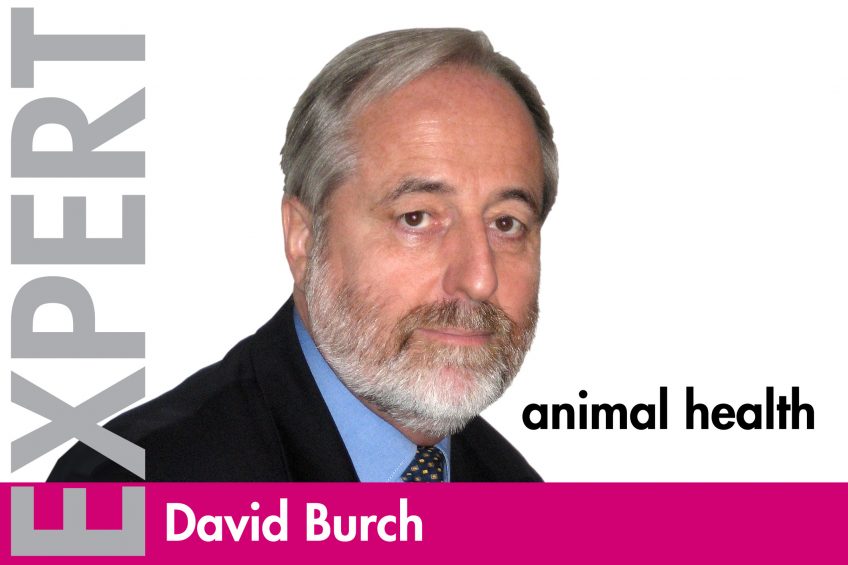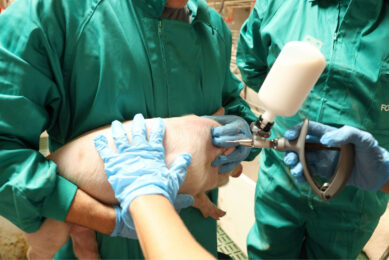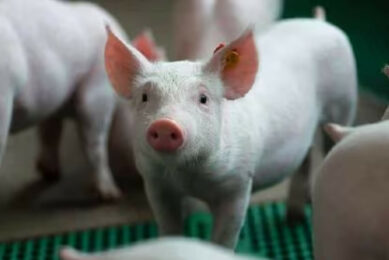4 reasons why ZnO ban in pigs is unfortunate

The therapeutic use of zinc oxide (ZnO) should be banned and existing national registrations should be withdrawn also. That is the recommendation of the European Medicines Agency (EMA) to the EU Commission. Health expert David Burch shares his doubts.
The actual text of the recommendation of the European Medicines Agency (EMA) is as follows:
“The Committee concluded the referral procedure for veterinary medicinal products containing zinc oxide to be administered orally to food producing species. The matter was referred to the Committee by the Netherlands and France under Article 35 of Directive 2001/82/EC due to concerns related to potential risk to the environment and increase of prevalence of antibiotic resistant bacteria from the use of products containing zinc oxide.
The Committee adopted by consensus an opinion concluding that overall the benefit-risk balance for the products concerned by this referral is negative, as the benefits of zinc oxide for the prevention of diarrhoea in pigs do not outweigh the risks for the environment. The CVMP acknowledged that there is a risk of co-selection for resistance associated with the use of zinc oxide, but at the present time, that risk is not quantifiable .
The Committee therefore recommended the refusal of the granting of the marketing authorisations and the withdrawal of the existing marketing authorisations for veterinary medicinal products containing zinc oxide.”
Unfortunate decision for EU pig producers
This is a most unfortunate decision for the majority of pig producers in the EU, who use zinc oxide at high levels in their peri-weaning feed to control post-weaning diarrhoea. At a time when we are trying to reduce the use of antibiotics in pig medicine it is bad news.
Some personal experiences regarding the use of zinc oxide in feed:
1. Zinc oxide helps post-weaning diets
Back in the 90’s a good farm got infected with Abbotstown Escherichia coli (O149). It was a clean farm and had a well controlled weaning shed, which had not had problems before. In spite of the use of antibiotics like trimethoprim/sulphonamide, neomycin, they did not stop the diarrhoea and increase in mortality to about 10%. Zinc oxide was added to the post-weaning diets and the problem disappeared.
2. Explosion of mortality without ZnO
I was carrying out a swine dysentery eradication on a farm and the local vet inadvertently forgot to prescribe the zinc oxide in the weaner feed and there was an explosion of mortality (2%) and diarrhoea and he was blamed.
3. Dirty weaners without zinc oxide
I was visiting a farm with respect to eradicating PRRS virus and enzootic pneumonia and noted the weaners were dirty and showing unevenness of growth, which lasted for 2 weeks. I have not seen this for years. I asked if he was using zinc oxide and he said he wasn’t. I have seen a similar farm in the Netherlands, where they do not use zinc oxide in the feed at all.
4. A 70% reduction of diarrhoea
The incidence of post-weaning diarrhoea in the UK since farmers switched to 4 week weaning and zinc oxide in the feed has reduced by nearly 70%.
Further reviews to ZnO are needed
If you are in a member state which allows the use of therapeutic levels of zinc oxide and want to retain it, then I suggest you contact your local representatives to contact their EU equivalent bodies – Copa-Cogeca, Fefac, Fefana, FVE, Epruma, IFAH-Europe to try and request that DG Agri and DG Sanco halt the decision until a further review can be carried out.
The benefits are very high for weaner pig health and welfare, EFSA (2012) has already passed a positive opinion on the environmental aspects of zinc oxide – no impact for 50 years and the EMA admit the antimicrobial resistance risks are unclear. I think the decision should be reassessed or the national registrations should be allowed to remain.
What do you think?











